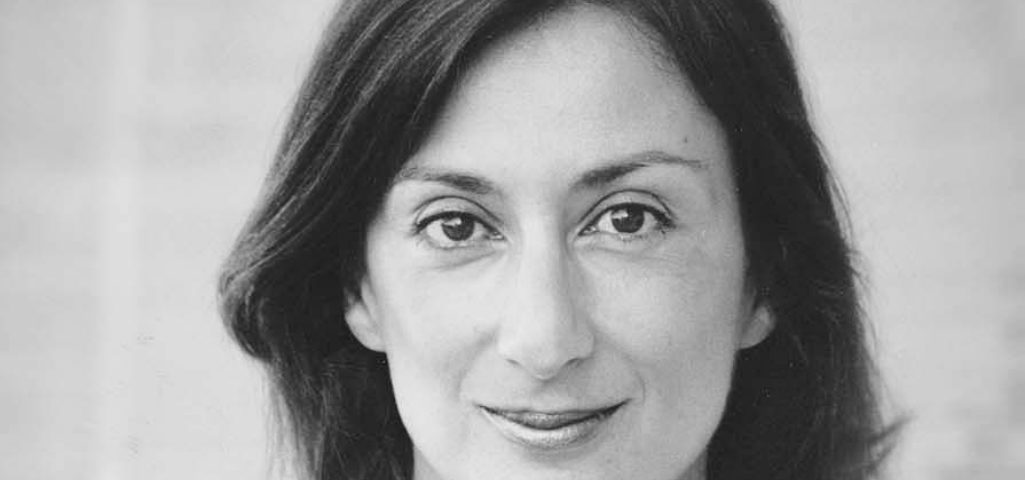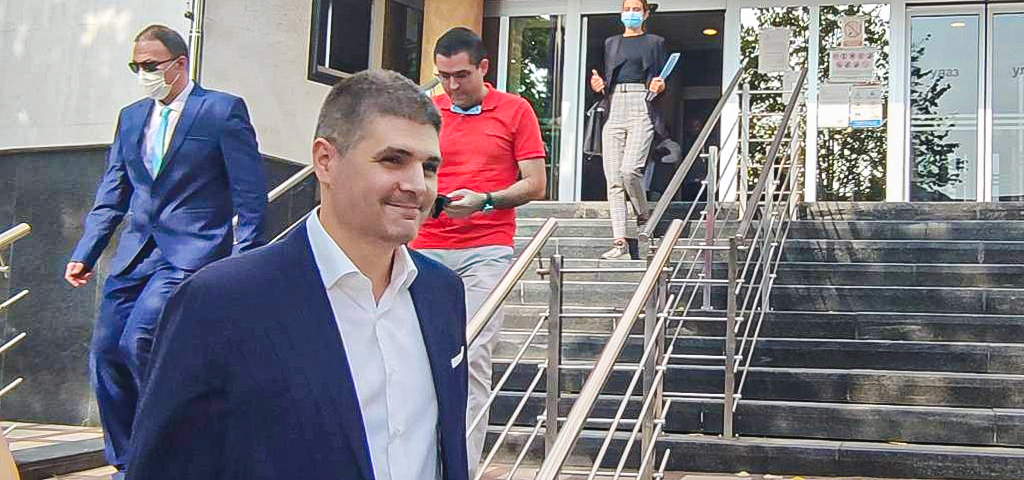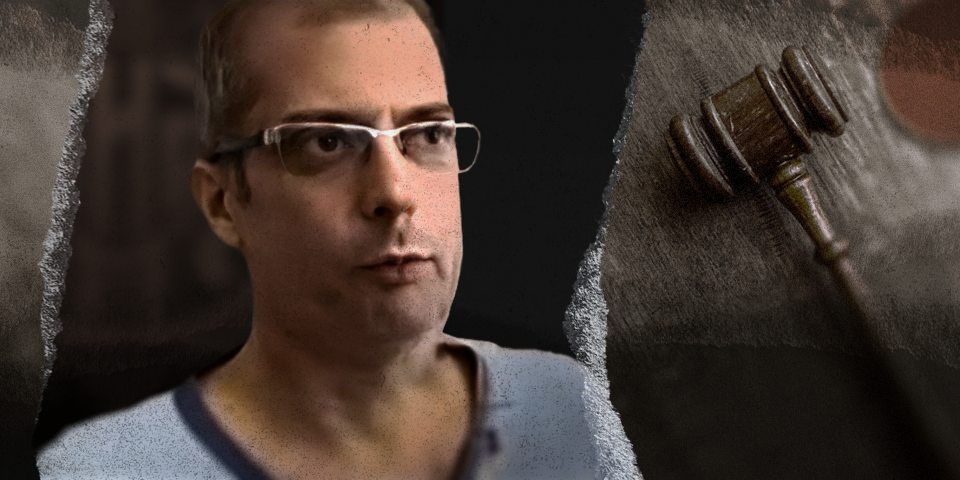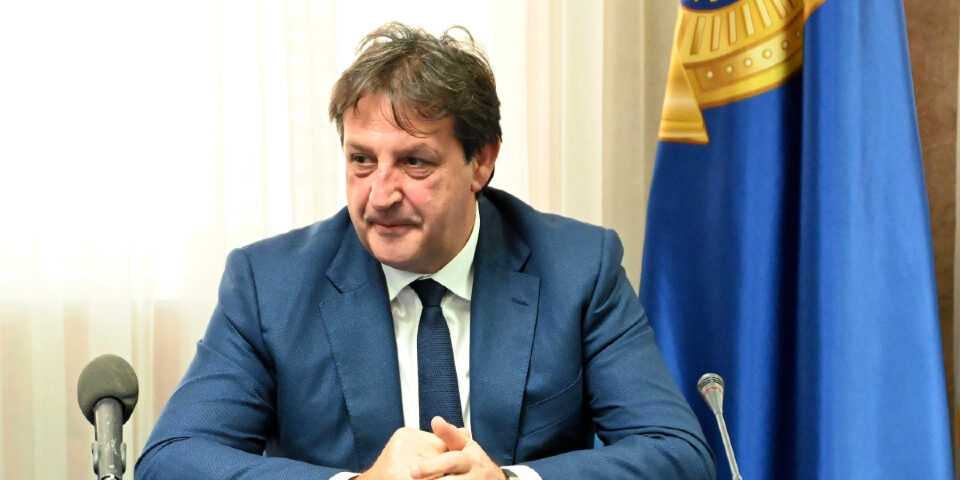Bitter fruit
Bitter fruit

Written by: Matthew Caruana Galizia
There are a number of things that my brothers and I no longer have patience for after our mother, the journalist Daphne Caruana Galizia, was assassinated in a car bomb attack in Malta on October 16, 2017.
The first is small talk and the second is what I call ‘conversations that get you nowhere’.
The person I least expected to have both of these with is the president of an actual country. This is why my answer to all of the Serbian journalists and activists who’ve asked me what happened before and during the platform I shared with him in Davos a month ago is this: it was an opportunity that Aleksandar Vučić chose to waste. We’re going to force a proper conversation here instead.
Up until a few years ago, people of my generation in Malta knew nothing but peace and relative tranquility. We were too young even to fight for EU membership. My clearest memory from 2003, the year Malta narrowly voted to join the EU, is returning home from a friend’s house the morning after the referendum to find my mother waiting in front of the door of our family home, something she had never done. Her face was green, sick with the worry that the ‘Yes’ campaign had lost and that her children would be locked out of Europe for good.
The people of the Balkans fought and died for democracy and for basic freedoms, whereas ours ended up landing in our laps thanks to luck, circumstance and the efforts of our parents.
Malta’s first ever NGO dedicated to investigative journalism was launched as a response to the major corruption scandals under our current prime minister, Joseph Muscat. In comparison, investigative journalists in the Balkans practically invented the field and today you have the highest concentration of brilliant journalists in the world (no thanks to your governments).
Our newest activists are fighting hard against a state that is doing everything it can to crush even the basic right to protest. Unlike you, we’re still learning to fight. You don’t need anyone to teach you how to do it. But I can offer a warning, as a voice from a bleak future that will be yours if you stop fighting, stall, or put false hope in membership of the European Union.
My personal experience with Malta, the island where I was born and the country that my mother died for, is that no country should rush into the Union before it’s ready. It’s tempting to push for membership as a quick fix for a country’s political problems, but as the assassination of my mother and the mind-bending corruption that enabled it shows, these problems can grow. European Union membership has increased the prize of corruption but none of the checks to hold it back.
The government of Malta continues to either ignore, cover up, or frame the assassination of my mother as an aberration, as though she were run over by a bus and not executed in broad daylight in front of our family home, using half a kilo of TNT packed into a complex, remotely controlled device under the seat of her car, as she drove to the bank to try and gain access to her accounts, which had been frozen by the Economy Minister.
Her assassination is the result of a sudden, deliberate destruction of the rule of law in Malta that began following the election of Joseph Muscat in 2013, first as a way of enabling corruption, then as a way of enabling impunity for corruption once exposed by my mother, then as a way of enabling impunity for her assassination.
You don’t have to take it from me: the Economist Intelligence Unit’s Democracy Index has just given us our lowest ranking ever for the second year running, just 14 years after joining the EU. We are now classed as ‘partly free’ within the Economist’s Free Speech Ranking.
We’re tasting the bitter fruit of structural problems that no one in Malta’s previous government, and no one in the European Commission, thought to cut at the root before we joined the European Union.
Pay close attention: reform once a country is already in the EU has proved impossible so far, which is why Serbian civil society actors like KRIK only have now as a window of opportunity to shape their country’s institutions and politics before the country joins. If Serbia doesn’t reform them, as difficult as it is, civil society should never fall for Vučić’s blackmail of supporting a quick accession process, as change becomes harder or impossible afterwards.
With no executive or judicial authority over citizens and only Europol, which combines structurally ineffective state-level police forces, Europe has become a playground for the organised criminal groups that were previously confined to state borders in Malta and Serbia.
Our prime minister’s chief of staff, Keith Schembri, was an insignificant bank clerk in the nineties. EU membership, and the election of his childhood friend Joseph Muscat, put him in a position where he was able to corrupt a billion-dollar deal for the purchase of gas, backed by European banks. Another friend of the prime minister, Neville Gafa, went from selling spectacles on the minimum wage to operating a multi-million euro Schengen visa sales racket from behind a government desk. Not only have they escaped prosecution: they still work for the prime minister.
Corruption of this scale was unknown in the Malta where I grew up – until it blindsided us. If you are already experiencing anything close to it before EU membership, then it will hit you worse in Serbia. Like us you’ll eventually reach a point of no return: the cash and market opportunities for corrupt politicians and criminals that flood in after membership will enable a venality so deeply rooted that it is impossible to remove, unless you kill the whole system and start from scratch.
But unlike us, you have a lever over both your government and the European Union. The message you need to send them is that you won’t join until both reform. The EU must become capable of containing and eliminating organised crime and corruption operating across and within member states, something which it is not currently even remotely capable of. And Serbia must show a willingness to reform its own systems of government. Civil society should use this small window to propose specific institutional reforms and gain the support of the European Commission to compel reform in Serbia. If it does not, then the opportunity will be lost forever.
Maybe one of you will lose your life in the process, as my mother has hers, but if you don’t use this window you will all lose your country.
Imagine that: a candidate country from the Balkans saying it will only join if the EU becomes better at fighting organized crime and corruption.



